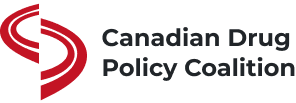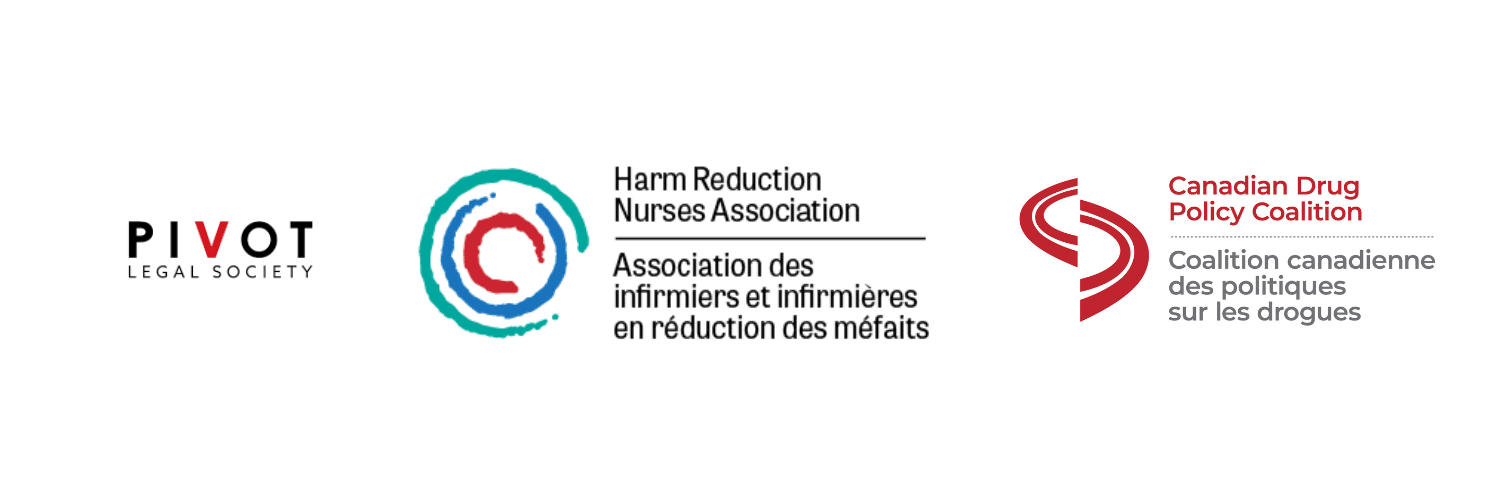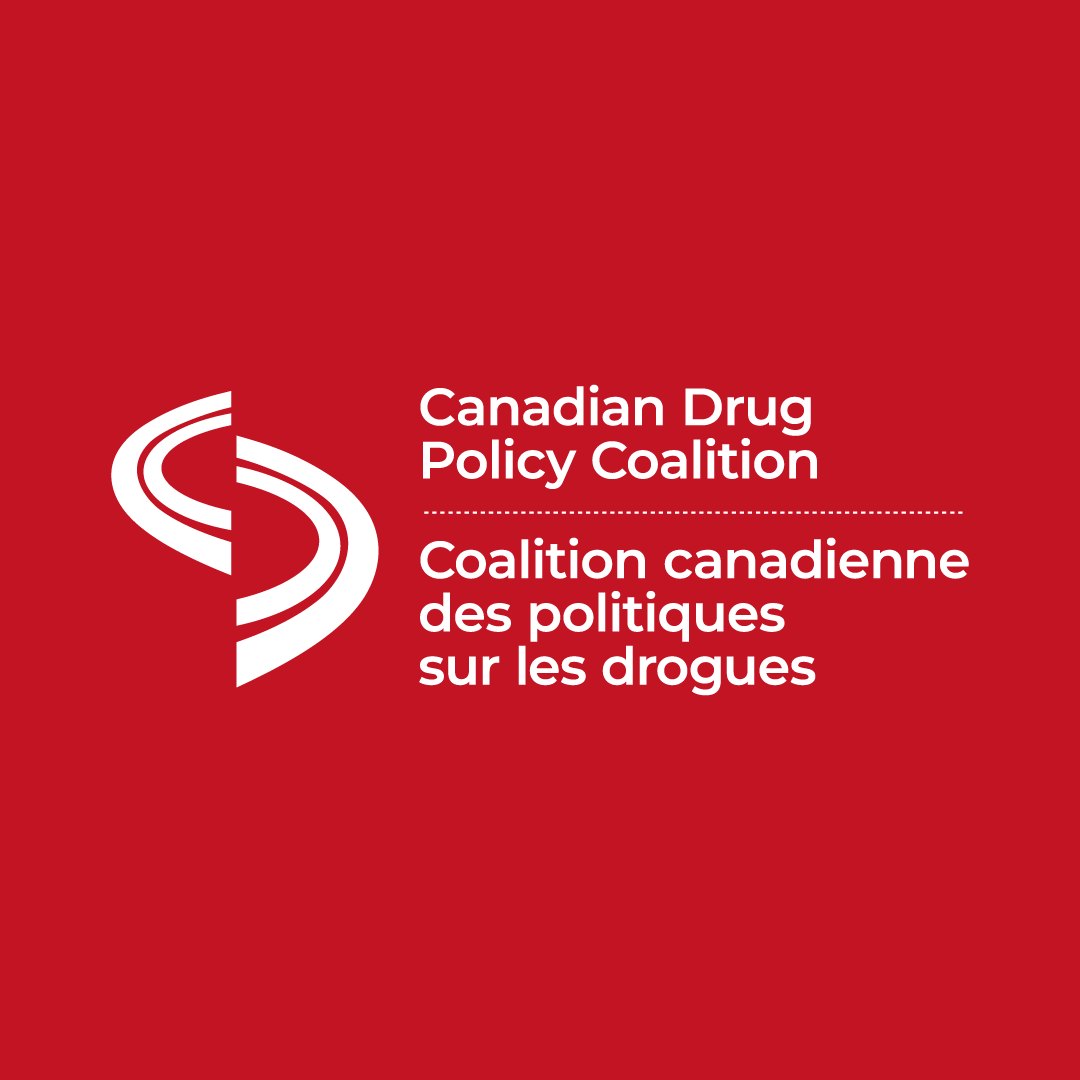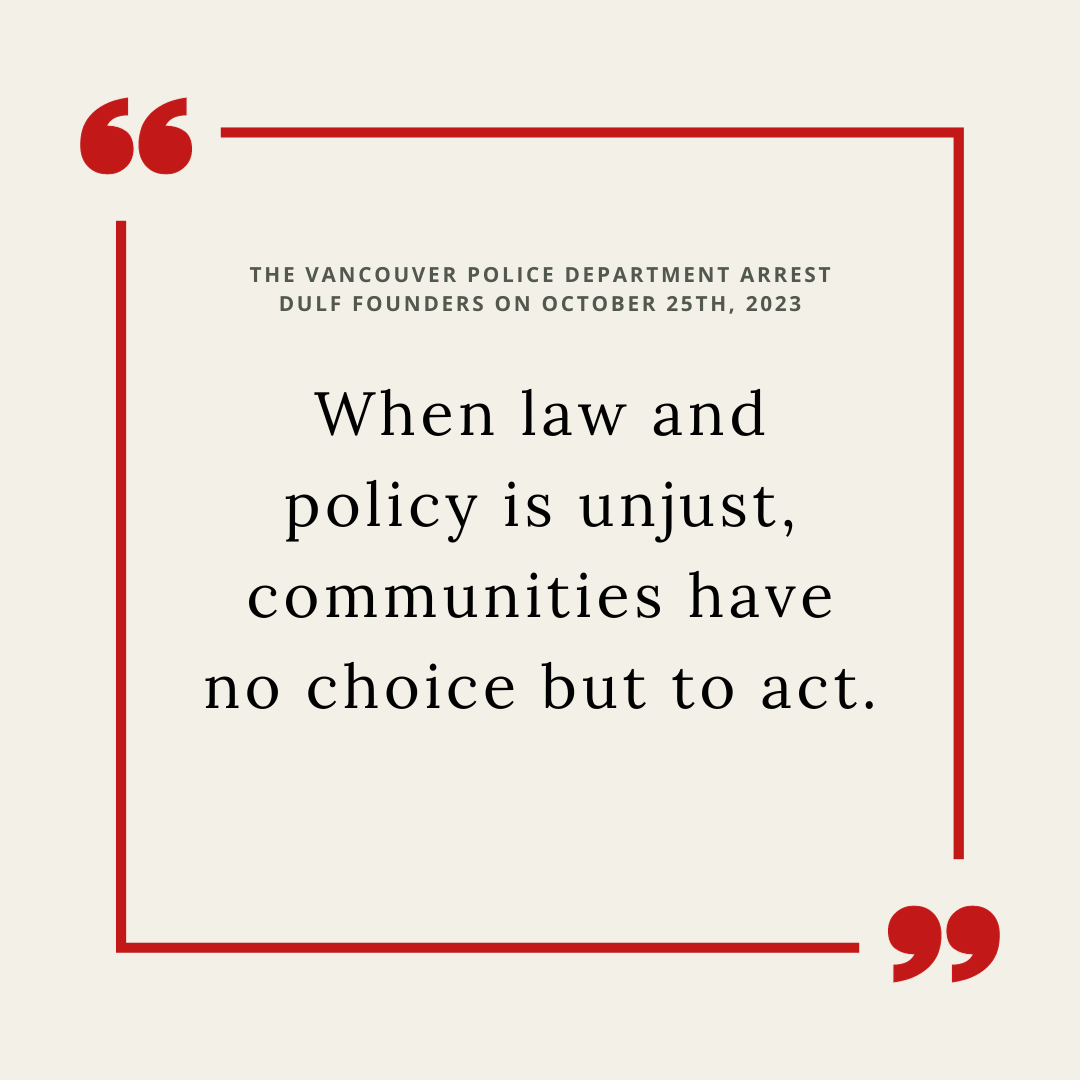Michael Nurse is a harm reduction practitioner, activist, and advocate. He resides in the city of Toronto where he has worked for the past 20 years delivering harm reduction-based street outreach from a lived experience perspective.
Frank Crichlow is the Board President of the Canadian Association of People Who Use Drugs and President of the Toronto Drug Users Union. He works at the South Riverdale Community Health Centre in Toronto as a Community Health Worker and is a community advocate with multiple organizations for people who are unhoused and who use drugs within African, Caribbean, Black, and racialized communities.
Frank Crichlow: The Imagine Safe Supply research looked at the meaning of drug user participation in safe supply. It found that the community values of people who use drugs would be central to the development and role out of effective safe supply. What is safe supply to you? And what kind of value-based considerations are there for safe supply within the African, Caribbean, and Black (ACB) community?
Michael Nurse: I see safe supply as a concept that offers transformation, that reshapes the way that people access drugs which are now deemed illicit or that are not regulated. But for me it’s problematic. At this time safe supply doesn’t really address all illicit drugs in use. It’s a particular focus on opioids. If you look at people who use crack cocaine, which in my home city of Toronto is predominantly people of African descent, even with crack cocaine people are experiencing overdoses from opiates which they never intended to use. So, to just have a focus on people who use opiates, to me it’s a very narrow focus. And it doesn’t really address the whole idea for me of safe supply, which is to transform the way that people access drugs which are currently illicit or not regulated. Yes, ACB people do use opiates intentionally, but I find we mostly use stimulants. And safe supply doesn’t address that use.
What I would like to see is a focus on safer supply. For me that would be saying OK we are intending quality assurance when people access drugs that are now deemed illicit. Until I see that approach, I don’t really see safe supply as a concept that is working in a broad and meaningful way for people of African descent.
Frank Crichlow: It’s important that those drugs should be included. Crack is a drug that Black people use, and we only have 2 or 3 safe consumption sites in Canada where people could go and smoke these drugs. Personally, as an ACB person, I would feel a lot better knowing that we have a safe place to go, and we feel safe in do
Michael Nurse: I agree.
Frank Crichlow: The research found that while there is a broad need for more representative leadership from the Black community within frontline care, there may be specific considerations around the leadership of Black women in safe supply. Black families and communities are often matriarchal, and we heard that it would be important to involve mothers, grandmothers, and extended family members in these discussions. This leadership was also seen as important to address the increased risk that Black women face within drug use communities due to targeting and harassment. What are your thoughts on the importance of Black women in leadership around safe supply?
Michael Nurse: Yes, I see a need for developing the presence, leadership skills and knowledge of women of African descent in safe supply. And indeed, this applies to most marginalized and racialized women. In the context of African People’s communities, it should be known that women are pretty much the anchors in homes. Most homes are held together and are led by women. So, I mean, it would be a fundamental flaw in any design for a community service that does not take into account the role women play in maintaining spaces for people. Remember, if we’re talking about this being a project that is being led by people with truly lived experience, women have a tremendous amount to offer from their lived experience. So that alone should say yes, women need to be factored in in a very high priority way. Because women carry that burden already, they play those roles already.
Frank Crichlow: But when you look at most organizations, Black women are seen mostly in frontline worker roles. There is just one community health centre I know of where we have a Black woman in an executive leadership position. To me, there is a need for women of ACB communities to be in higher positions. They are skillful and knowledgeable enough to be in those positions.
Michael Nurse: You also bring up another point Frank. In most cases women in the ACB community are the trusted figures. They are the ones we go to for care, for advice, for intimacy, in these areas they are the trusted figures. When we look at the mistrust that we as People of African descent have in institutions, in organizations, you can see clearly why there is a need for more Black women within those fields. Just to heal that image, just to break down distrust between us and the service entity as we seek access to care and support. And also for the institutions that already exist to offer services in response to our real needs or desires.
Frank Crichlow: Where is that distrust coming from?
Michael Nurse: That distrust is coming from the histories of this type of engagement.
Frank Crichlow: Of whiteness?
Michael Nurse: Not necessarily from whiteness. I would say it comes from the system, the institution, the whole capitalization of how people live, you know. It’s about business, it’s all about money, it’s all about funding. Organizations will dump you in a moment, dump programs in a moment, if it means that they can get a better handle on their money. So, the distrust doesn’t just come from whiteness, even though you could make that connection due to the high incidence of white privilege in the field and our society in general. But It comes from the way that money is prioritized in our society, with people being secondary.
Frank Crichlow: Yeah, but we have to remember, many Black women haven’t gotten over how they’ve been treated within these organizations. All that people report to is White people. How many people report to Black women in leadership roles?
Michael Nurse: I don’t know if I agree with you there, Frank. Because to me the treatment of Black people, women, or men in general, from organizations they need to trust isn’t just a fact of race. For example, I strongly believe that some of the most demeaning treatment a person of African descent can get from a police officer, is from a Black police officer.
Frank Crichlow: Yea, that’s true.
Michael Nurse: If it is within the culture of society – be it black, white, yellow, green, brown, pink – we all buy into it because it is a system that controls how we access services. If we don’t really allow the people who are experiencing this to drive it, then we end up with the same model that we’ve always had. And I wouldn’t just pin this on White people. I would pin this on the cultural system we live in. It is still White people who are visible in representing the system, but we are also represented in there.
Frank Crichlow: It was just a point that I was raising about how some of us feel because of whiteness and how they look at us as weak people.
Michael Nurse: I don’t think you can package everything into whiteness. Because you know the Franz Fanon book “Black Skin White Mask”? I think some of it speaks to this experience. Once we have to exist within the system, we make choices based on the system and what it allows us. So, to me this is a struggle not against people but against the system. That’s where I see it.
Frank Crichlow: Okay, I could accept that. But I still believe that one of the main struggles is how we have been treated.
Michael Nurse: Fair enough. But let’s say nothing changes within the way that safe supply is being developed and administered and the focus continues to be on opiates, after People of African descent are hired on to promote and help drive this work. As Black people, wouldn’t we be perpetuating the same kind of mal treatment that was always there before?
Frank Crichlow: I would say no.
Michael Nurse: What would change? Would we have the ability to make changes on the spot as we work, as people?
Frank Crichlow: Exactly, see that’s the challenge. That is where we have to challenge the system to make those changes.
Michael Nurse: So, the action is still against the system?
Frank Crichlow: Yes.
Michael Nurse: Yeah, so that to me it is where we meet. And for me, the key is for people to collaborate to change the system. We need to point out challenges, but also encourage people of all types to join in and fight to change the system and culture that seeks to dictate how people live and how they access safety and care. Yeah, that is where I see it. There definitely is a need for change and we need collaboration among all people to bring about this change.
Frank Crichlow: The Imagine Safe Supply research team heard that discrimination around gender and sexuality for Black LGBTQIA+ people leads to increased mental health risks and associated drug use. Do you see this as a problem in terms of LGBTQIA+ discrimination within ACB communities? How do you think we can provide a safe space for the Black LGBTQIA+ community with safe supply?
Michael Nurse: Of course, any kind of racism or oppression has a lasting effect on mental health. For me, that goes without saying. There are definite barriers against LGBTQIA+ people, against queer people, and this is compounded for LGBTQIA+ people who use drugs. It appears to me that discrimination expands according to how different you are from the mainstream, from the status quo. I remember when Black people I knew began to inject. It took a long time for that to be talked about with service providers or even in the community. People resisted telling other people within the community that they were injecting drugs because it was frowned upon. Injecting with needles was seen as much less desirable than smoking crack. Add now being LGBTQIA+, then you step into a whole new set of discrimination.
And remember that most ACB communities are grounded in the Church. That’s where many black people seek spiritual and social guidance, connection with each other, social organizing. Predominantly, most of that comes through the church. And the church says sexual activity or love exchange between same sex genders is sinful. So, starting with that, the Church is actively subscribing to the social alienation and oppression of LGBTQIA+ people. How then do you expect LGBTQIA+ people to access places that offer safe supply if hanging over their heads is the stress of having to navigate discrimination and other oppressive social and cultural barriers based on their sexual preferences?
It does mean that we need to address and deal with the social harms the Church presents. One segment of a community or population doesn’t represent everybody and cannot be dictating to all people how people live. So, the Church’s influence and involvement in maintaining harm to a segment of the population has to be addressed. It’s been suggested that a way to move this change forward is by finding the progressive members of religious communities and showing them the benefit of harm reduction and safe supply. If that works, it works. If it doesn’t work, straight out, confrontation. Because I believe in justice. You don’t need to pussy foot around this. Things need to change, definitely.
Frank Crichlow: The Church seems part of the problem because the church should be addressing those issues.
Michael Nurse: The Church is part of the problem and the Church appears unwilling to address these issues, but that doesn’t mean that we should ignore them. We need to bring it forward and fight. My trust and my hope are not really in the Church, my hope is in the people. I certainly don’t have to accept anything that the Church says or that doesn’t make sense to me. I’m looking at progress. I’m looking at people beginning to assert their existence. To say, this is what I need. Look at me, I’m here! For me, that is where safe supply and harm reduction need to be led. How will people who use drugs come out of the shadows? It shouldn’t be a shadow issue. It shouldn’t be a shadow movement. We should be out of the shadows, living our lives. I mean respecting each other.
Frank Crichlow: So, should the Church address harm reduction or safe supply?
Michael Nurse: What I would say in answer to that question is that the Church needs to get real. The message that’s coming out of the Church in terms of sin and how people live their lives, is it touching people today? You know, it isn’t touching people today as it used to. My thing is more about focusing on how we collaborate to have laws, policies, programs, and services that represent us as people. And realize that we can.
Frank Crichlow: The reason why I ask that question is because you know when anything happens, the grandma and the great grandma say, “because you don’t believe in God” and they start praying, and they want you to start praying. So, what if they would go tell the preacher that the Church should address these issues of discrimination?
Michael Nurse: Yeah, you know, I remember when dancing and winding up and so was seen as really wrong within the Church. Frank, you can’t really go into a Caribbean church these days and not hear reggae and soca music jamming, people singing to this music. It has changed, and the change doesn’t necessarily have to start within the Church, it has to start with people. And if it is right for the people, they will take it to Church, people will take it wherever, because it will reflect their lives.
Frank Crichlow: Yea.
Michael Nurse: It does need to be real.
Frank Crichlow: Particularly at the barber shop. Anywhere Black people congregate, these conversations should happen.
Michael Nurse: Yes!
Frank Crichlow: Everywhere Black people congregate, whether a street corner, whether in a bar, anywhere. And I think that is the solution there.
Michael Nurse: We also have to take on a responsibility in terms of being proactive in challenging stigma and discrimination. The first time I walked into a needle exchange there were all these messages and images on the walls, and stuff that reflected positively on me and my lifestyle. And this wasn’t done because I asked for it. It was done because I was recognized by a group of mindful people, and they created that space. I always see communities as an extension of that needle exchange. And we don’t need to just make that space comfortable; make the whole organization, the social space comfortable. Bring those images and messages out so that people know. Make posters and stuff. Give them to the barber shops, give them to the church, too! Put that up there! When people come in, let them see this, show them that you represent this, that you’re okay with it. Show them that this is good, you know. I feel like that’s something that we can do, just promote that goodness, you know.
Frank Crichlow: Great, very good points, Michael. Thank you very much.
Imagine Safe Supply is a community-based research project that explored participation in safe supply in Canada for people who use drugs and frontline workers. For more information on this research please visit here.









